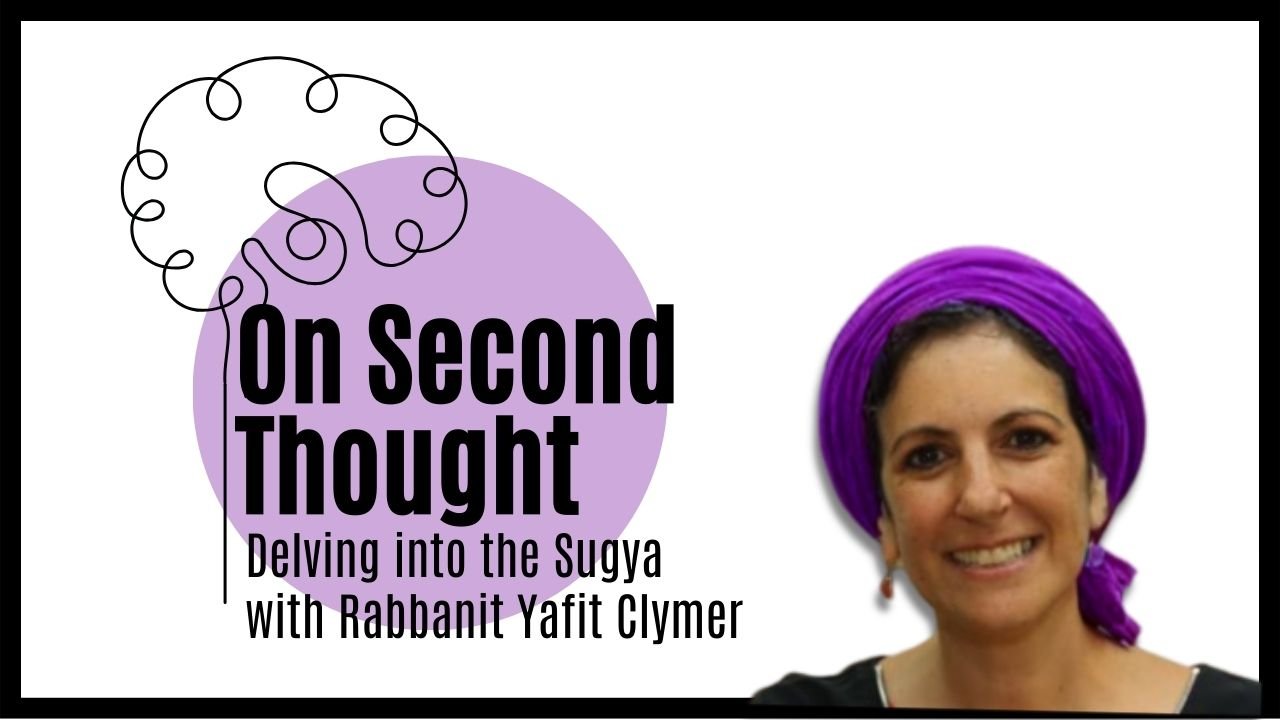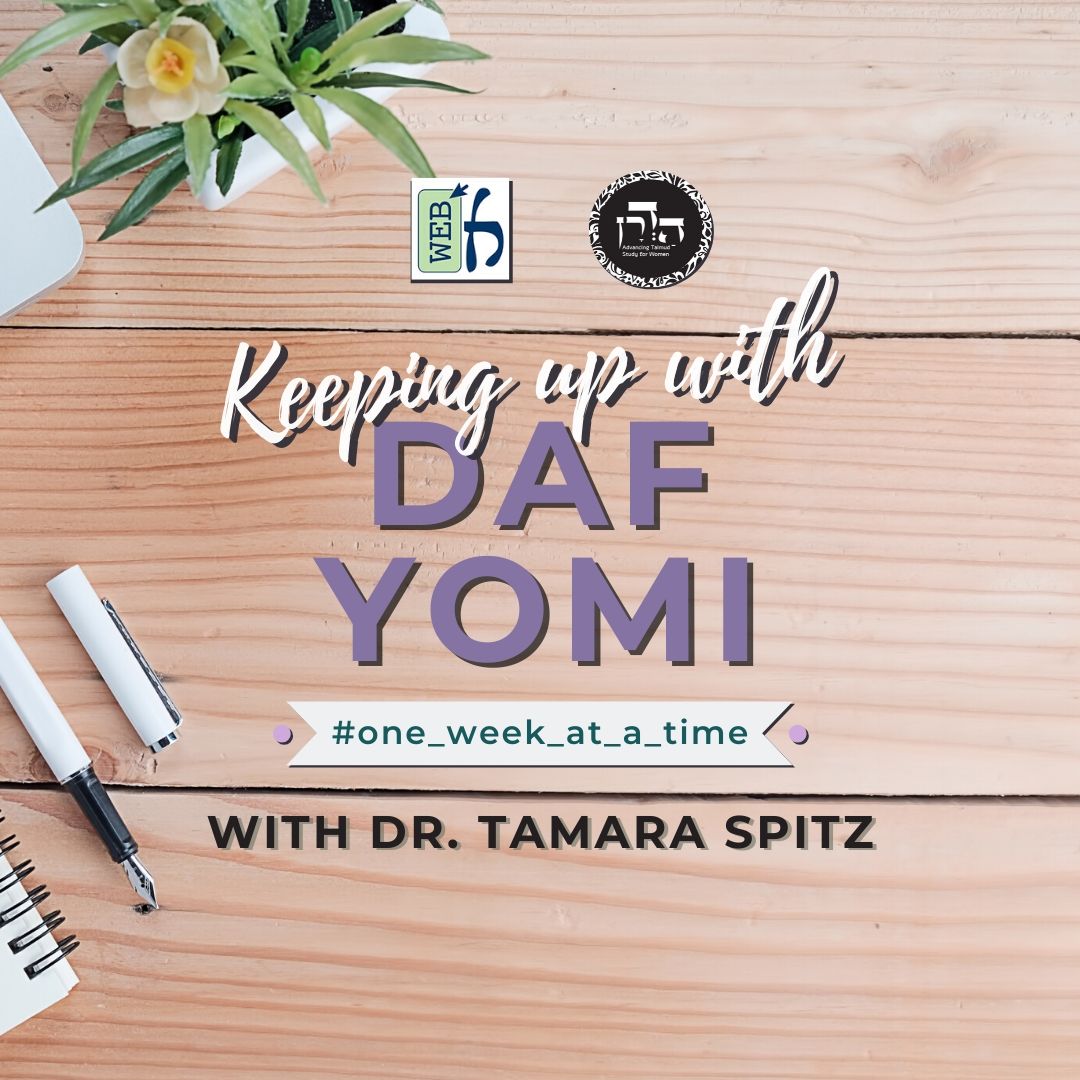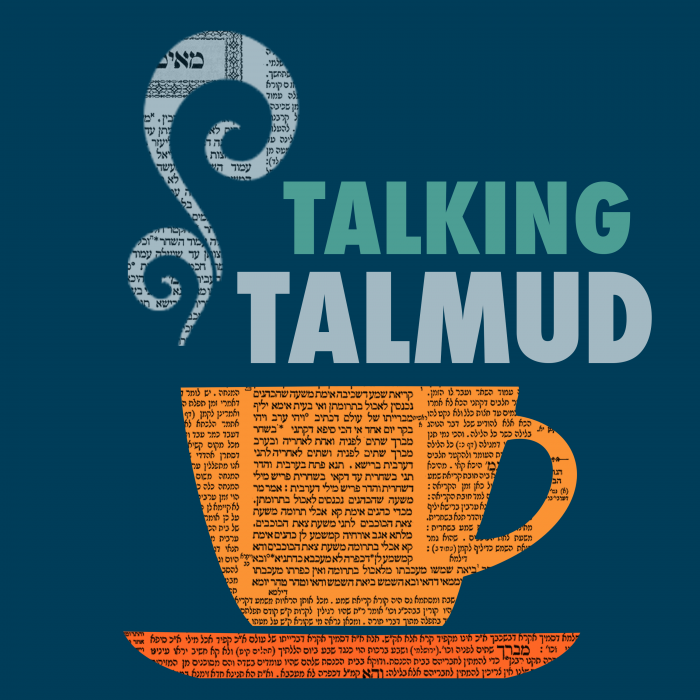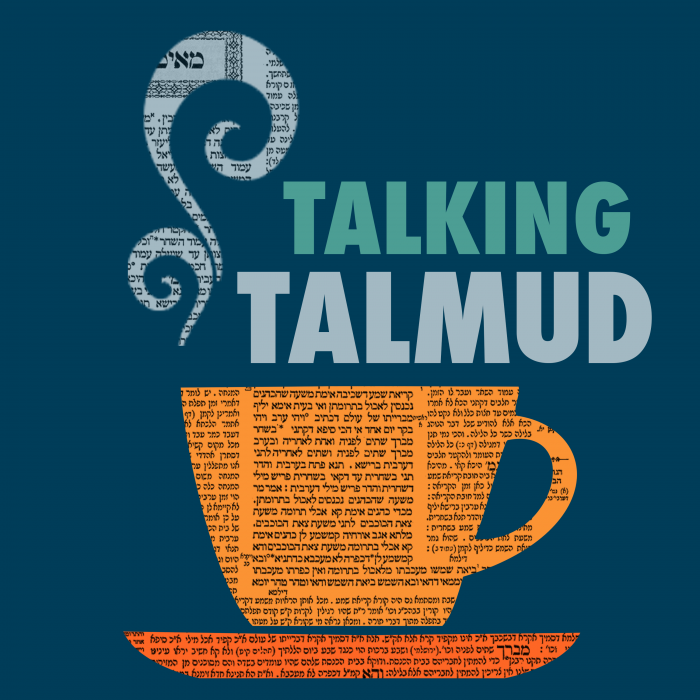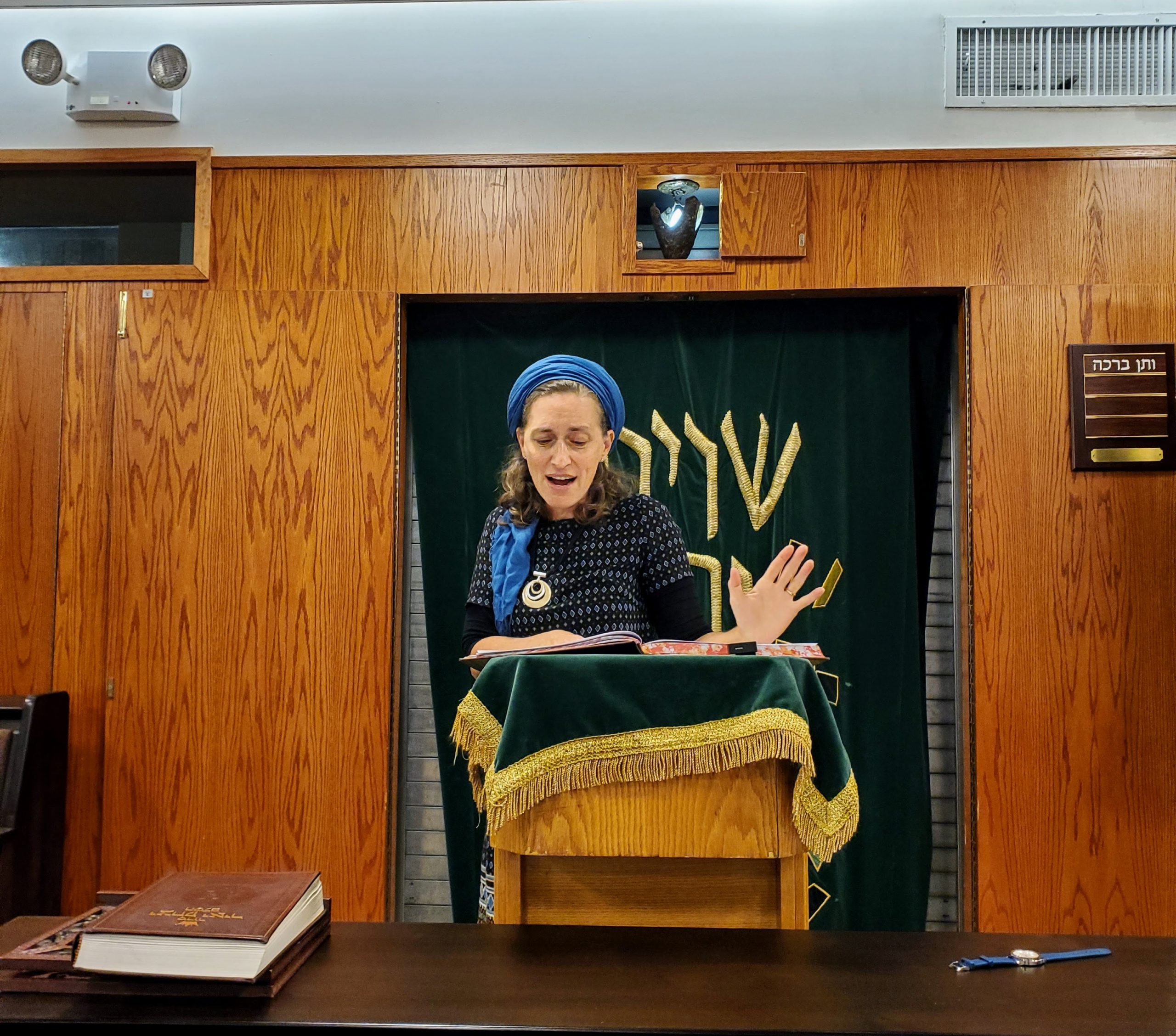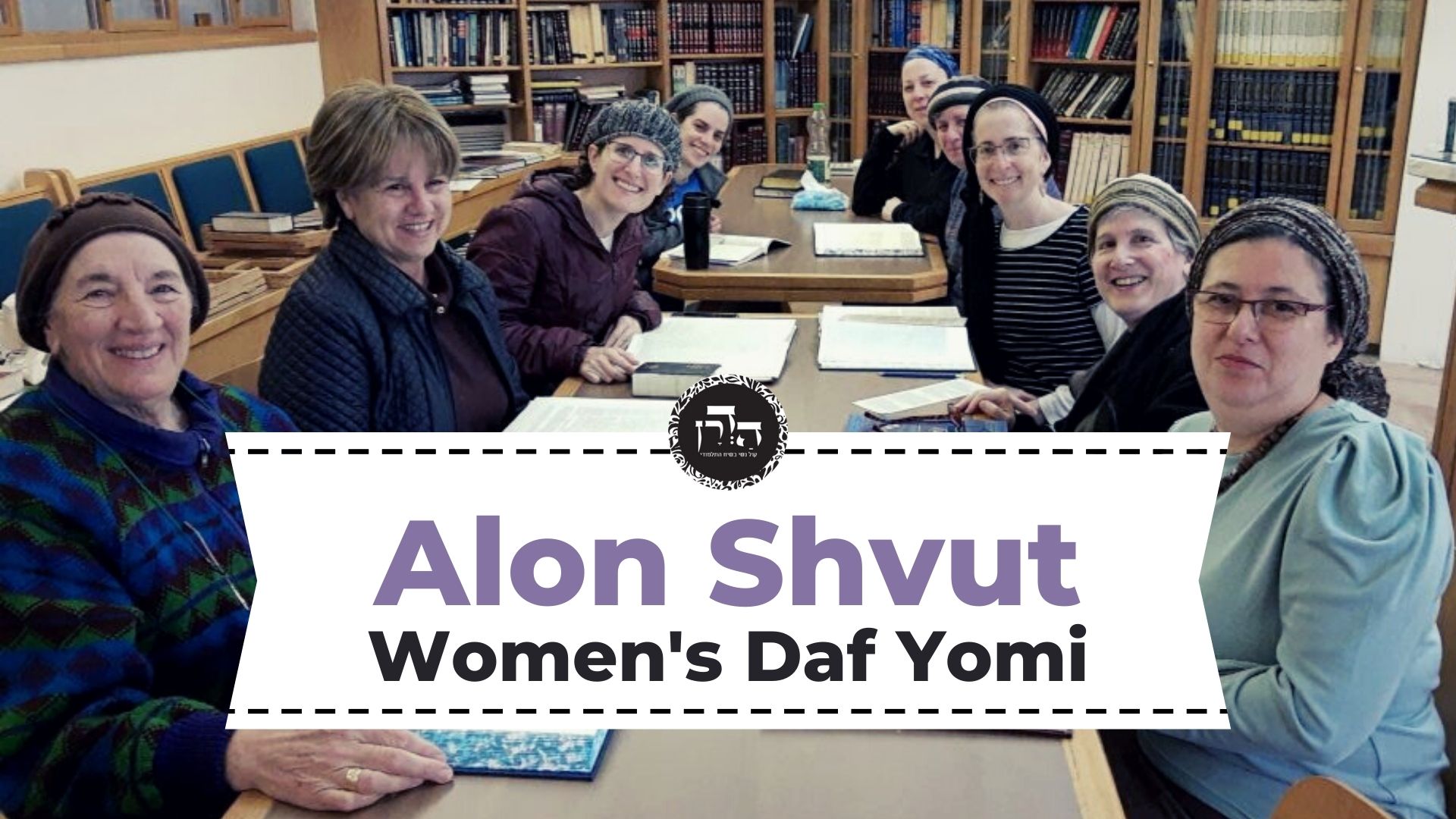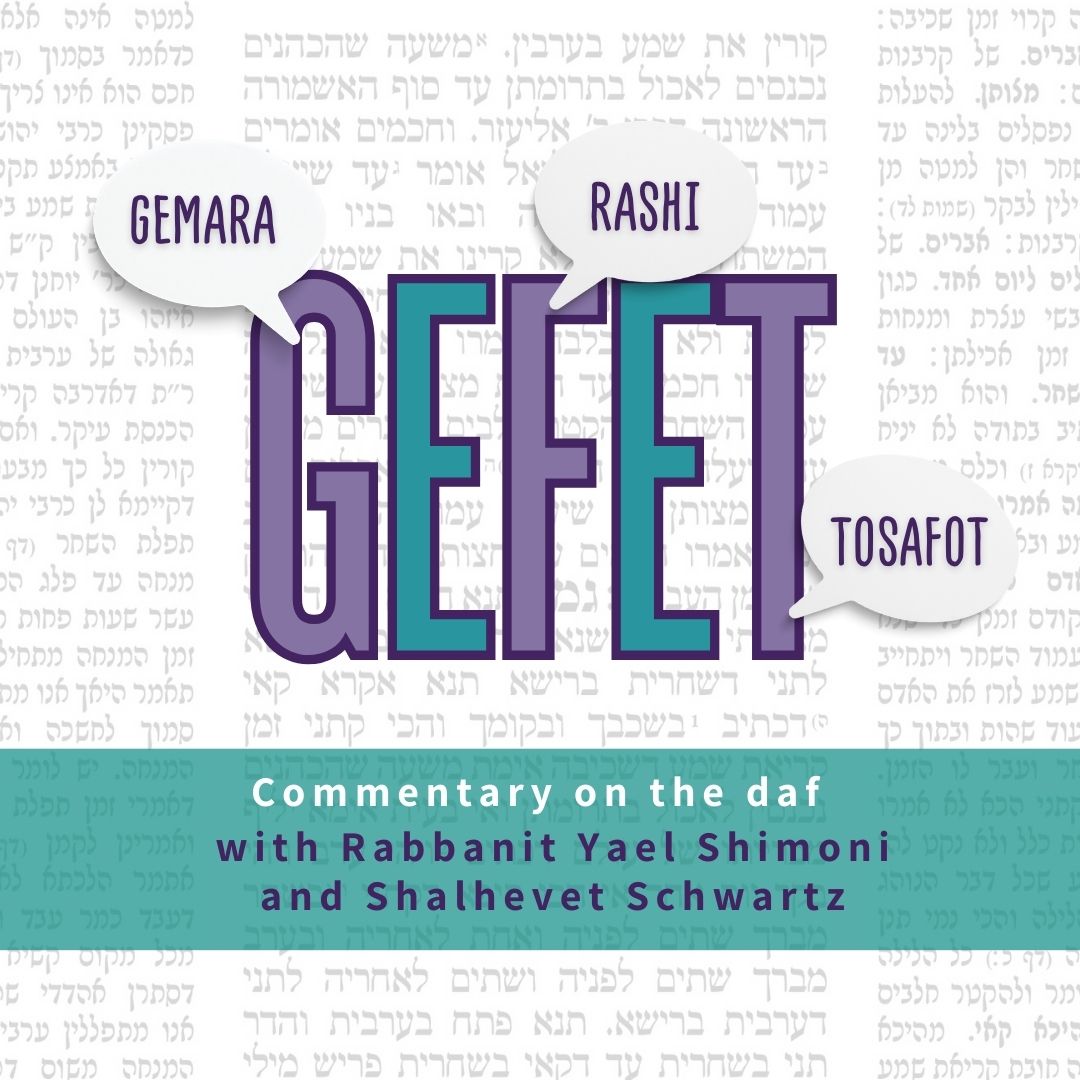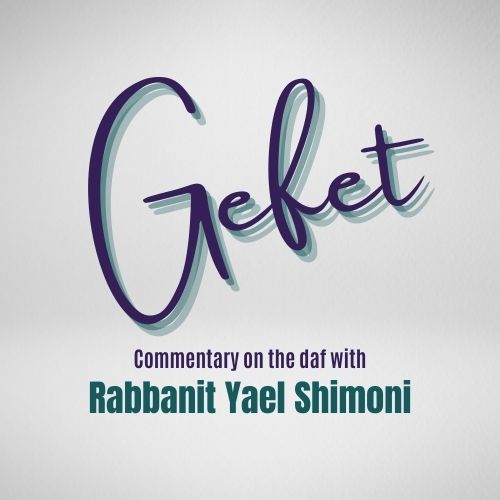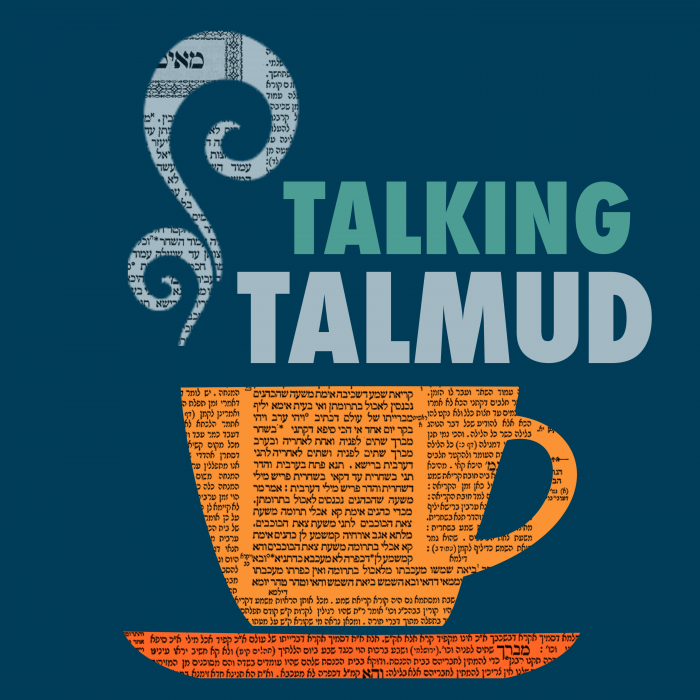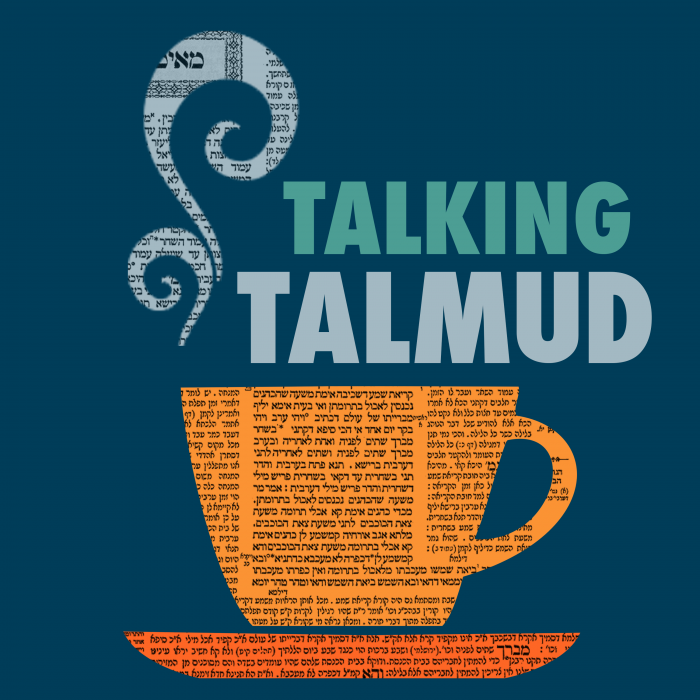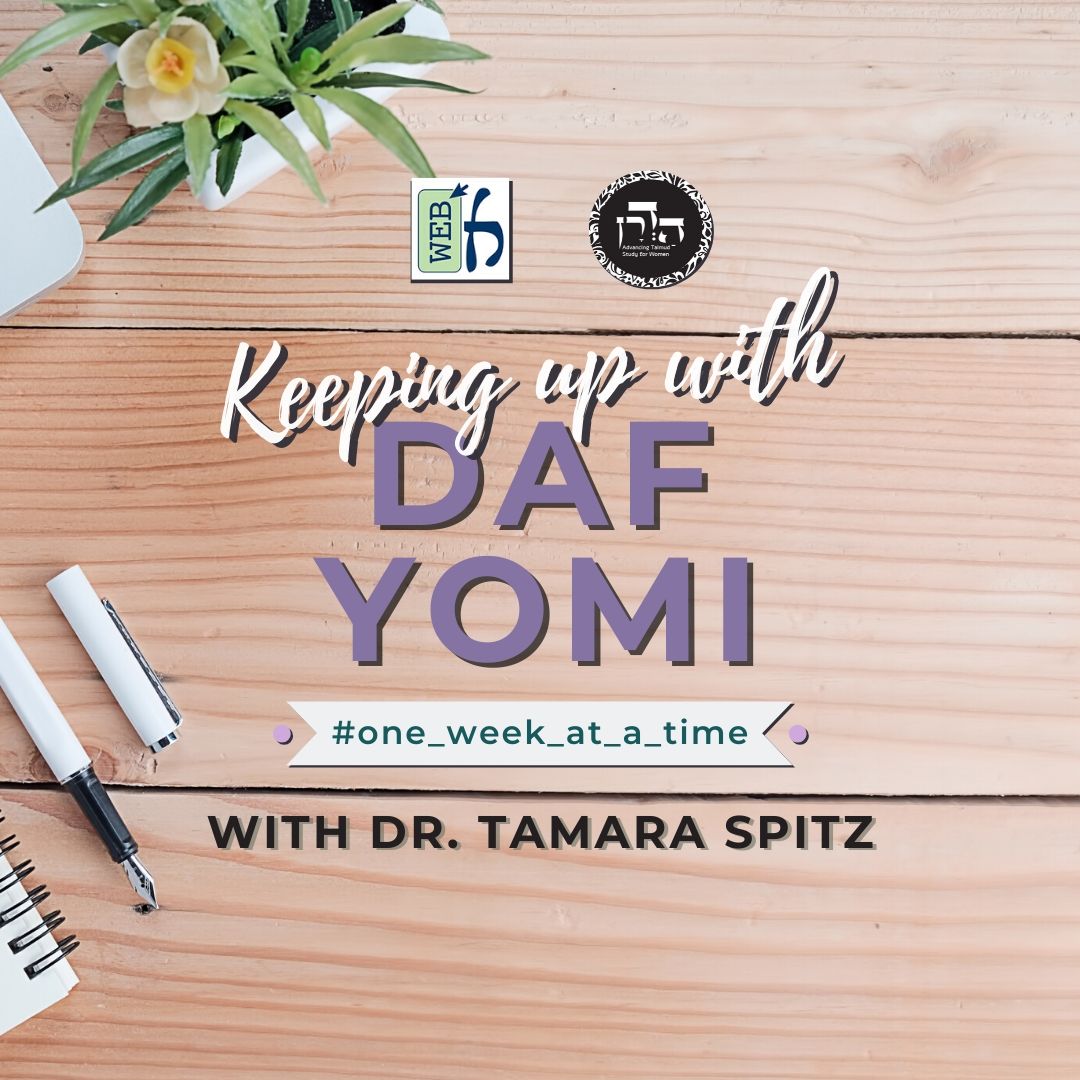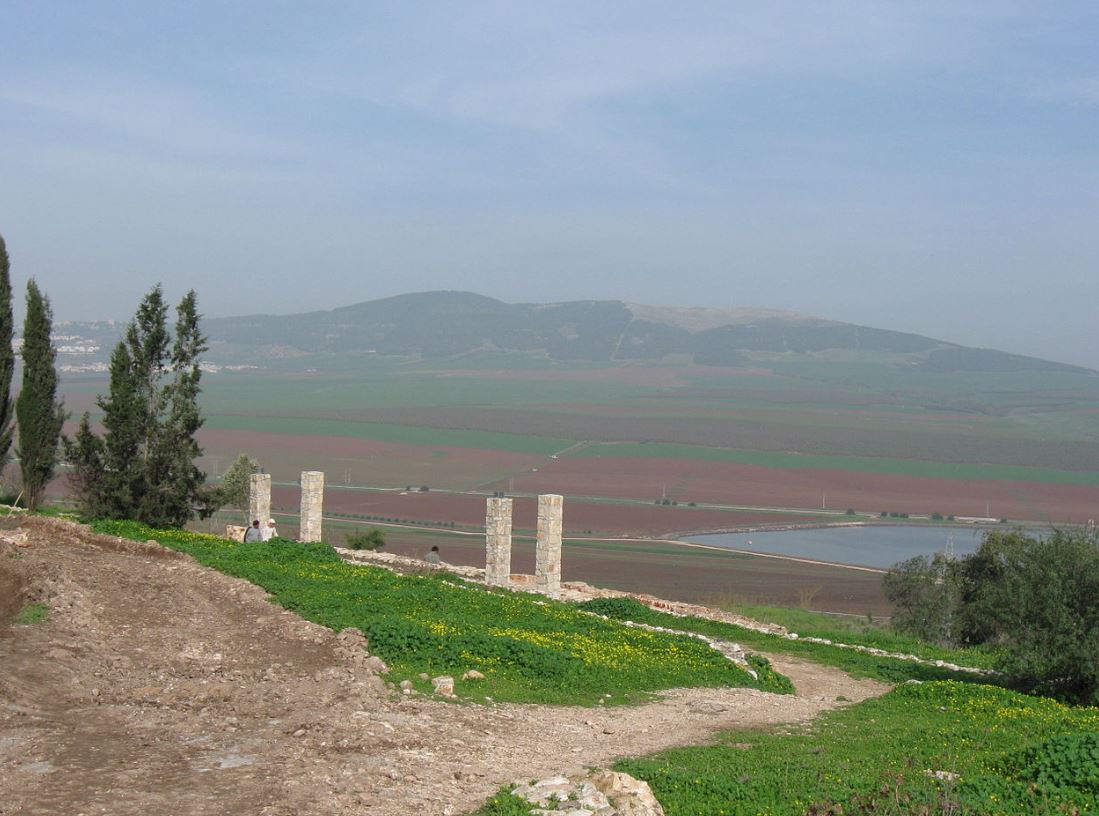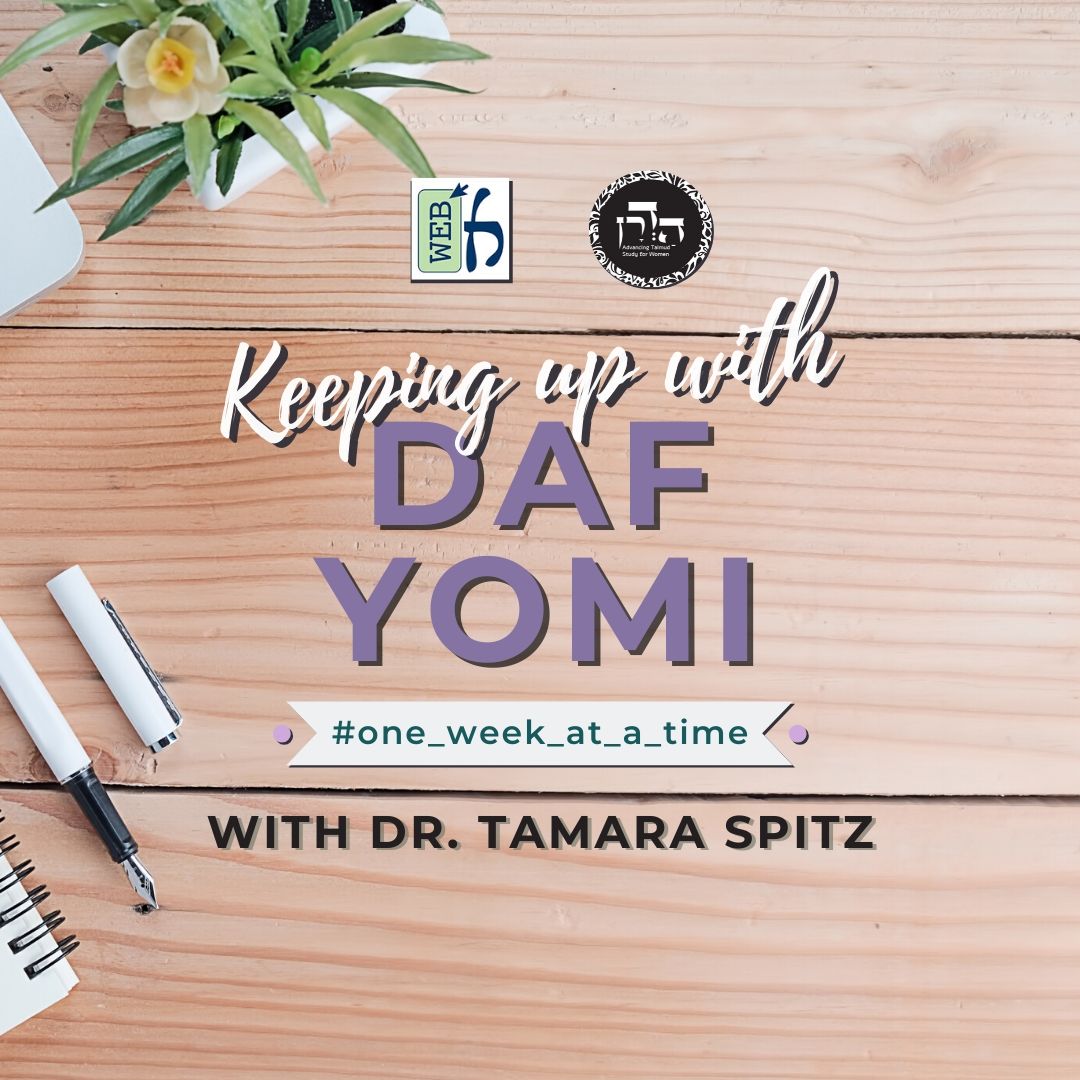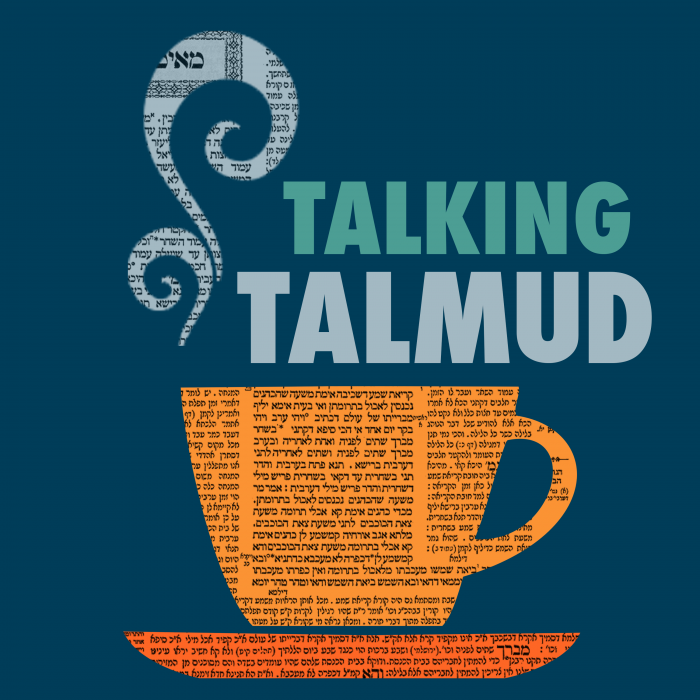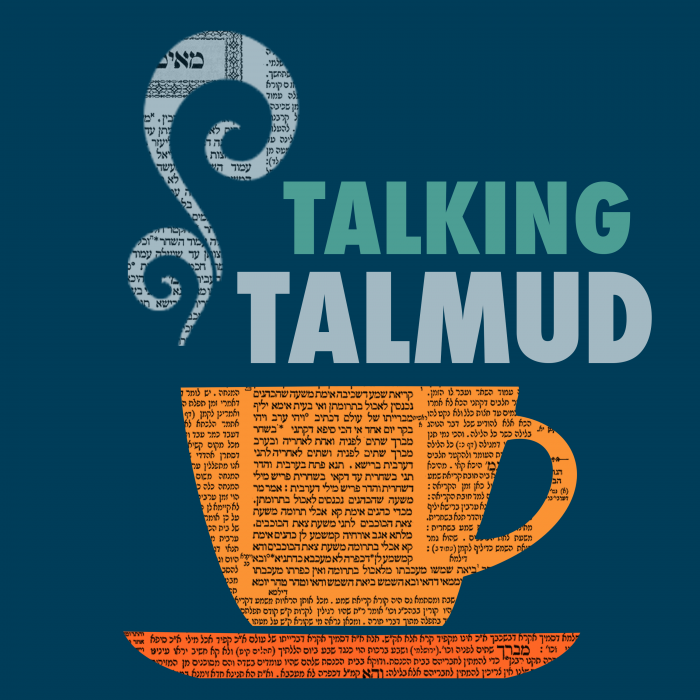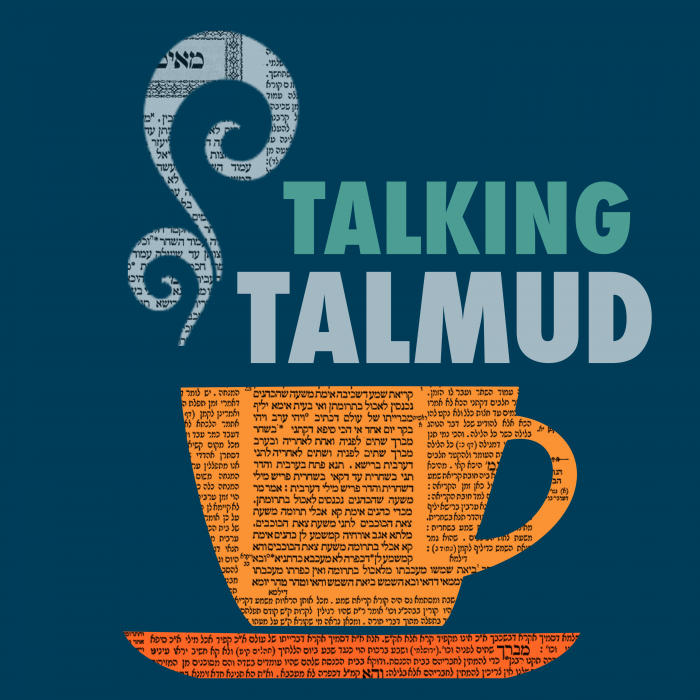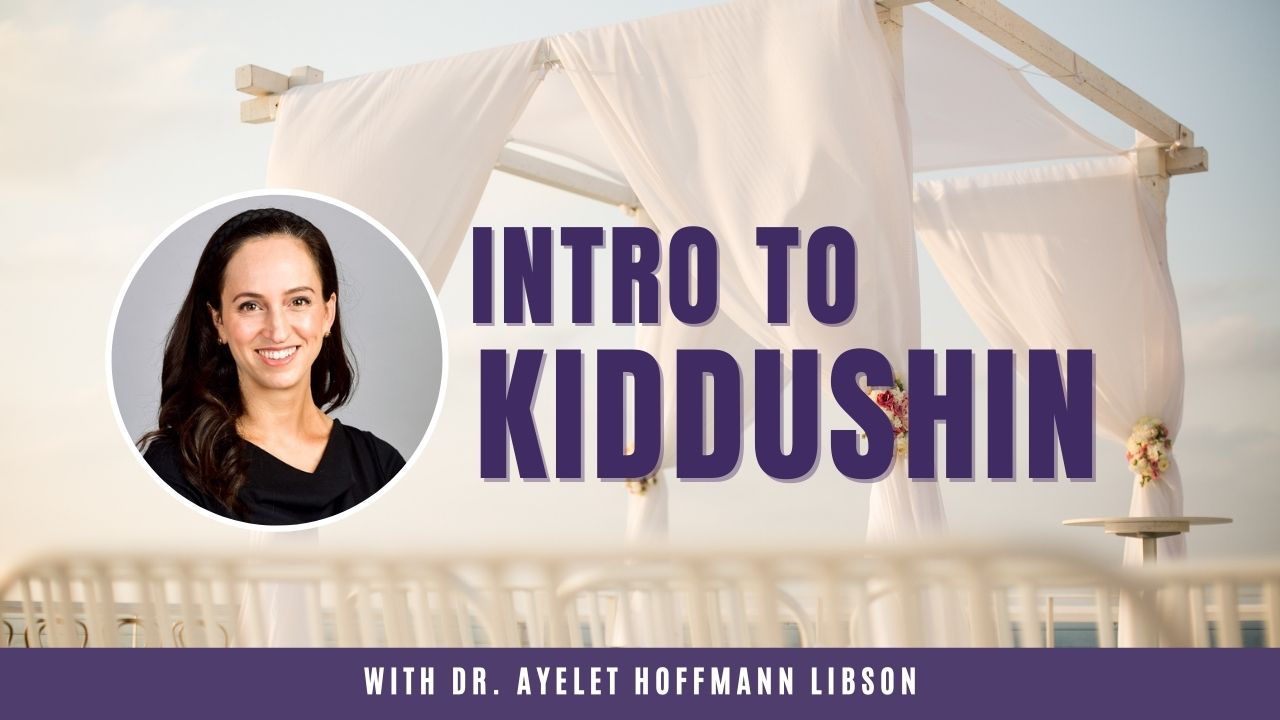Different scenarios are brought regarding one obligated to bring a sliding scale offering whose financial situation changes after one designates money for the offering. What does one do with the money? Are animals rejected from sacrifices temporarily also rejected forever? At what stage is the designation of which bird will be used for the sin offering (in bird pairs) and which for the burnt offering effective? Is there a hierarchy in animals or birds for sacrifices, in mother/father regarding respect for parents or father/rabbi? The gemara ends with a story of four priests who some were mentioned in a good way and some in a bad way. The message at the end of the masechet is that talmidei chachamim bring peace to the world. What is unique about them that brings peace? And what is the message of the end of the masechet and how does it relate to the concept of sinners, the main topic of the masechet?
This week’s learning is sponsored for the merit and safety of Haymanut (Emuna) Kasau, who was 9 years old when she disappeared from her home in Tzfat two years ago, on the 16th of Adar, 5784 (February 25, 2024), and whose whereabouts remain unknown.
This week’s learning is dedicated of the safety of our nation, the soldiers and citizens of Israel, and for the liberation of the Iranian people. May we soon see the realization of “ליהודים היתה אורה ושמחה וששון ויקר”.
This week’s learning is sponsored for the merit and safety of Haymanut (Emuna) Kasau, who was 9 years old when she disappeared from her home in Tzfat two years ago, on the 16th of Adar, 5784 (February 25, 2024), and whose whereabouts remain unknown.
Want to dedicate learning? Get started here:


Today’s daily daf tools:
This week’s learning is sponsored for the merit and safety of Haymanut (Emuna) Kasau, who was 9 years old when she disappeared from her home in Tzfat two years ago, on the 16th of Adar, 5784 (February 25, 2024), and whose whereabouts remain unknown.
This week’s learning is dedicated of the safety of our nation, the soldiers and citizens of Israel, and for the liberation of the Iranian people. May we soon see the realization of “ליהודים היתה אורה ושמחה וששון ויקר”.
This week’s learning is sponsored for the merit and safety of Haymanut (Emuna) Kasau, who was 9 years old when she disappeared from her home in Tzfat two years ago, on the 16th of Adar, 5784 (February 25, 2024), and whose whereabouts remain unknown.
Today’s daily daf tools:
Delve Deeper
Broaden your understanding of the topics on this daf with classes and podcasts from top women Talmud scholars.
New to Talmud?
Check out our resources designed to help you navigate a page of Talmud – and study at the pace, level and style that fits you.
The Hadran Women’s Tapestry
Meet the diverse women learning Gemara at Hadran and hear their stories.
Keritot 28
לְכִבְשָׂתוֹ, וְהֶעֱנִי. הוֹאִיל וְנִדְחָה – יִדָּחֶה.
instead of a female lamb, and he then became poorer, a bird pair is now the appropriate offering for him. Nevertheless, since his offering was disqualified at the outset because at that time he was obligated to bring a female lamb, it is permanently disqualified.
אָמַר רַב הוּנָא בְּרֵיהּ דְּרַב יְהוֹשֻׁעַ, שְׁמַע מִינָה תְּלָת: שְׁמַע מִינַּהּ בַּעֲלֵי חַיִּים נִדְחִים. וּקְדוּשַּׁת דָּמִים (נִדְחָה).
Rav Huna, son of Rav Yehoshua, said: One can conclude from this ruling three halakhot. Conclude from it that consecrated living animals can be permanently disqualified even if the animal is unblemished, as is the case with regard to this pair of birds. And conclude from it that when there is sanctity that inheres in an animal’s value, where the consecrated item will not be sacrificed as an offering, it can be disqualified. When he was wealthy and designated the bird pair as his offering, the two birds were consecrated only with sanctity that inheres in their value because they were unfit for sacrifice, and yet the birds were permanently disqualified.
וְדָחוּי מֵעִיקָּרָא הָוֵי דָּחוּי.
And finally, conclude from this that a disqualification at the outset, when the animal is initially consecrated, is considered a permanent disqualification. Not only is an animal that was initially fit to be sacrificed and was later disqualified permanently disqualified, but even in a case such as this, where the birds were unfit for sacrifice from the beginning, the disqualification is permanent.
מֵתִיב רַב עוּקְבָא בַּר חָמָא: הַמַּפְרִישׁ נְקֵבָה לְפִסְחוֹ קוֹדֶם הַפֶּסַח – תִּרְעֶה עַד שֶׁתִּסְתָּאֵב, וְתִמָּכֵר וְיָבִיא בְּדָמֶיהָ פֶּסַח. יָלְדָה זָכָר – יִרְעֶה עַד שֶׁיִּסְתָּאֵב, וְיִמָּכֵר וְיָבִיא בְּדָמָיו פֶּסַח.
Rav Ukva bar Ḥama raises an objection from a baraita (Tosefta, Temura 2:3): With regard to one who designates a female animal for his Paschal offering before Passover, since the Paschal offering must be a male it is left to graze until it becomes blemished, at which point it is sold and one brings a Paschal offering with the money received from its sale. Similarly, if this animal gave birth to a male animal, the offspring is left to graze until it becomes blemished, at which point it is sold and one brings a Paschal offering with the money received from its sale.
רַבִּי שִׁמְעוֹן אוֹמֵר: הוּא עַצְמוֹ יִקְרַב פֶּסַח. שְׁמַע מִינַּהּ, בַּעֲלֵי חַיִּים אֵינָם נִדְחִים!
Rabbi Shimon says: It is not necessary to sell the offspring in such a case, as the offspring itself is sacrificed as a Paschal offering. Conclude from this statement of Rabbi Shimon that consecrated living animals are not permanently disqualified, as the mother was unfit to be a Paschal offering and yet the offspring, which is an extension of the mother’s sanctity, is fit for sacrifice.
אָמְרִי דְּבֵי רַבִּי אוֹשַׁעְיָא: כִּי אָמְרִינַן לְרַבָּנַן (דְ)רַבִּי שִׁמְעוֹן סְבִירָא לֵיהּ בַּעֲלֵי חַיִּים אֵינָן נִדְחִין,
The school of Rabbi Oshaya say: When we say that consecrated living animals can be permanently disqualified, this applies according to the opinion of the Rabbis, who maintain that the offspring is not sacrificed. Nevertheless, it is correct that Rabbi Shimon holds that consecrated living animals are not permanently disqualified.
וְהַגְרָלָה אֵינָהּ מְעַכֶּבֶת. דְּתַנְיָא: מֵת אֶחָד מֵהֶן – מֵבִיא חֲבֵירוֹ שֶׁלֹּא בְּהַגְרָלָה, דִּבְרֵי רַבִּי שִׁמְעוֹן.
And Rabbi Shimon likewise maintains that the drawing of the lots for the two goats on Yom Kippur to decide which goat is designated as a sacrifice and which is designated as the scapegoat, is not indispensable. As it is taught in a baraita: If one of the goats died following their designation, one brings another goat instead of it, and it is designated without drawing lots. The surviving goat is still used for the purpose for which it was designated by the lot; this is the statement of Rabbi Shimon.
אַלְמָא קָסָבַר בַּעֲלֵי חַיִּים אֵינָן נִידְחִין, וְהַגְרָלָה אֵינָהּ מְעַכֶּבֶת.
Evidently, Rabbi Shimon holds: Consecrated living animals are not permanently disqualified. Although the surviving goat was disqualified when the other goat died, it is once again fit when a new goat is designated as its partner. And Rabbi Shimon also holds that the drawing of the lots is not indispensable, as the new goat was designated without drawing lots.
אָמַר רַב חִסְדָּא: אֵין הַקִּינִּין מִתְפָּרְשׁוֹת, אֶלָּא אִי בִּלְקִיחַת בְּעָלִים, אִי בַּעֲשִׂיַּית כֹּהֵן.
§ Rav Ḥisda says: Nests, i.e., pairs of birds, are designated,one as a burnt offering and one as a sin offering, only in the following manner: Either by the owner at the time of purchase or, if the owner did not designate the birds at that stage, by the priest at the time of sacrifice.
אָמַר רַב שִׁימִי בַּר אָשֵׁי: מַאי טַעְמָא דְּרַב חִסְדָּא? דִּכְתִיב: ״וְלָקְחָה שְׁתֵּי תוֹרִים וְגוֹ׳״, ״וְעָשָׂה הַכֹּהֵן וְגוֹ׳״ – אוֹ בִּלְקִיחַת בְּעָלִים, אוֹ בַּעֲשִׂיַּית כֹּהֵן.
Rav Shimi bar Ashi said: What is the reason of Rav Ḥisda? As it is written with regard to the offering of a woman after childbirth: “And she shall purchase two doves or two pigeons, one for a burnt offering and the other for a sin offering” (Leviticus 12:8). And with regard to the offering of a leper it is written: “And the priest shall sacrifice the one for a sin offering, and the other for a burnt offering” (Leviticus 15:30). Together, these verses indicate that one bird is designated as a burnt offering and the other as a sin offering either by the owner at the time of purchase or by the priest at the time of sacrifice.
מֵיתִיבִי: ״וְעָשָׂהוּ חַטָּאת״ – הַגּוֹרָל עוֹשֵׂהוּ חַטָּאת, וְאֵין הַשֵּׁם עוֹשֵׂהוּ חַטָּאת, וְאֵין כֹּהֵן עוֹשֶׂה חַטָּאת.
The Gemara raises an objection from a baraita in the Sifra that discusses the drawing of lots for the two goats of Yom Kippur. The verse states: “Aaron shall bring forward the goat upon which the lot came up for the Lord, and he shall sacrifice it for a sin offering” (Leviticus 16:9). This teaches that the drawing of the lot renders it a sin offering, but verbally designating the name of the goat does not render it a sin offering, and likewise the act of the priest, placing the lot on the goat, does not render it a sin offering.
שֶׁיָּכוֹל: וַהֲלֹא דִין הוּא, וּמָה בִּמְקוֹם שֶׁלֹּא קִידֵּשׁ הַגּוֹרָל – קִידֵּשׁ הַשֵּׁם, מְקוֹם שֶׁיקִּדֵּשׁ הַגּוֹרָל – אֵינוֹ דִּין שֶׁיְּקַדֵּשׁ הַשֵּׁם?
A verse is required to teach this halakha, as one might have come to the opposite conclusion: Could this not be derived through an a fortiori inference, as follows: And if in a case where the drawing of a lot does not sanctify an animal with a specific designation, e.g., a woman after childbirth, who cannot determine by lot the status of the two birds she must bring, one as a sin offering and one as a burnt offering, nevertheless, in such a case a verbal designation of the name does sanctify with a specific designation; is it not logical in a case where the drawing of a lot sanctifies an animal with a specific designation, i.e., the two goats of Yom Kippur, that verbally designating the name should sanctify it with a specific designation?
תַּלְמוּד לוֹמַר: ״וְעָשָׂהוּ חַטָּאת״, הַגּוֹרָל עוֹשֵׂהוּ חַטָּאת, וְאֵין הַשֵּׁם עוֹשֵׂהוּ חַטָּאת.
The baraita concludes: Therefore the verse states, with regard to one of the two goats of Yom Kippur: “He shall sacrifice it for a sin offering,” to teach that the drawing of the lot renders it a sin offering, but verbally designating the name of the goat does not render it a sin offering.
קָתָנֵי שֵׁם דּוּמְיָא דְּגוֹרָל: מָה גּוֹרָל לָאו בִּלְקִיחָה וְלָאו בַּעֲשִׂיָּיה, אַף הַשֵּׁם נָמֵי לָאו בִּלְקִיחָה וְלָאו בַּעֲשִׂיָּיה!
The Gemara explains the objection: The baraita teaches that verbally designating the name of an offering is similar to drawing a lot. If so, one can reason as follows: Just as the drawing of a lot is not performed at the time of purchase nor at the time of sacrifice, so too verbal designation of the name also does not have to be performed at the time of purchase nor at the time of sacrifice. This contradicts the opinion of Rav Ḥisda.
אָמַר רַב, הָכִי קָאָמַר: וּמָה בִּמְקוֹם שֶׁלֹּא קִידֵּשׁ הַגּוֹרָל בִּלְקִיחַת בְּעָלִים וּבַעֲשִׂיַּית הַכֹּהֵן – קִידֵּשׁ הַשֵּׁם, אִי בִּלְקִיחַת בְּעָלִים אִי בַּעֲשִׂיַּית כֹּהֵן. כָּאן שֶׁקִּדֵּשׁ הַגּוֹרָל שֶׁלֹּא בִּלְקִיחָה וְשֶׁלֹּא בַּעֲשִׂיָּיה – אֵינוֹ דִּין שֶׁיקִּדֵּשׁ הַשֵּׁם, אִי בִּלְקִיחָה אִי בַּעֲשִׂיָּיה?
Rav said that this is what the baraita is saying: And if in a place where the drawing of a lot, either by the owner at the time of purchase or by the priest at the time of sacrifice, does not sanctify an animal with a specific designation, and nevertheless a verbal designation of the name, either by the owner at the time of purchase or by the priest at the time of sacrifice, does sanctify it with a specific designation; here, with regard to the two goats, where the drawing of a lot that does not take place at the time of purchase nor at the time of sacrifice sanctifies the animal with a specific designation, is it not logical that verbally designating the name, either at the time of purchase or at the time of sacrifice, should sanctify it with a specific designation?
תַּלְמוּד לוֹמַר: ״וְעָשָׂהוּ חַטָּאת״, הַגּוֹרָל עוֹשֵׂהוּ חַטָּאת, וְאֵין הַשֵּׁם עוֹשֵׂהוּ חַטָּאת.
Therefore, the verse states: “He shall sacrifice it for a sin offering,” to teach that drawing the lot renders it a sin offering, but verbally designating the name of the goat does not render it a sin offering.
מֵיתִיבִי: מְטַמֵּא מִקְדָּשׁ עָנִי שֶׁהִפְרִישׁ מָעוֹת לְקִינּוֹ, וְהֶעֱשִׁיר.
The Gemara raises another objection to the opinion of Rav Ḥisda from a baraita: In the case of a poor person who defiles the Temple, i.e., he entered the Temple while ritually impure, who designated money for his nest, as he is required to bring one bird as a sin offering and another bird as a burnt offering, and he then became wealthier, he is now obligated to bring a female lamb or goat as a sin offering.
אָמַר ״אֵלּוּ לְחַטָּאתִי וְאֵלּוּ לְעוֹלָתִי״ – מוֹסִיף וּמֵבִיא חוֹבָתוֹ מִדְּמֵי חַטָּאתוֹ, וְאֵין מוֹסִיף וּמֵבִיא מִדְּמֵי עוֹלָתוֹ.
If he was unaware that he is no longer obligated to bring a pair of birds, and he says: This money is for my sin offering and this money is for my burnt offering, which is an error, as he is not obligated to bring a burnt offering, he adds more money and brings his obligation of a lamb or goat for his sin offering from the money designated for his sin offering. But he may not add more money and bring his obligation of a sin offering from the money designated for his burnt offering, as one may not use money that is designated for a burnt offering for the purchase of a sin offering.
וְהָא הָכָא דְּלֵיכָּא לָא לְקִיחָה וְלָא עֲשִׂיָּיה, וְקָתָנֵי: מֵבִיא חוֹבָתוֹ מִדְּמֵי חַטָּאתוֹ, וְלָא מִדְּמֵי עוֹלָתוֹ!
The Gemara explains the objection: But here, the baraita is dealing with a case where he said: This money is for my sin offering and that money is for my burnt offering, which means that he designated the money at a stage that was not the time of purchase nor the time of sacrifice; and yet the baraita teaches that the designation is established and therefore he brings his obligation of a sin offering from the money designated for a sin offering but not from the money designated for a burnt offering.
אָמַר רַב שֵׁשֶׁת: וְתִסְבְּרַאּ מַתְנִיתָא מְתַקַּנְתָּא הִיא, דְּקָתָנֵי ״וְהֶעֱשִׁיר״? וְהָאָמַר רַבִּי אֶלְעָזָר אָמַר רַבִּי אוֹשַׁעְיָא: מְטַמֵּא מִקְדָּשׁ עָשִׁיר שֶׁהֵבִיא קׇרְבַּן עָנִי – לֹא יָצָא!
Rav Sheshet said: And can you understand that this baraita is properly explained, i.e., the baraita as it stands is difficult, as it teaches: He became wealthier and said: This money is for my sin offering and this money is for my burnt offering. But this is difficult, as doesn’t Rabbi Elazar say that Rabbi Oshaya says: A wealthy person who defiles the Temple, i.e., he entered the Temple while ritually impure,who brought the offering of a poor person to atone for his transgression has not fulfilled his obligation. Since he cannot fulfill his obligation with that offering, how can his designation permanently establish the status of the money?
אֶלָּא, מַאי אִית לָךְ לְמֵימַר? שֶׁכְּבָר אָמַר מִשְּׁעַת עֲנִיּוּתוֹ, הָכִי נָמֵי שֶׁכְּבָר אָמַר מִשְּׁעַת הַפְרָשָׁתוֹ.
Rather, what have you to say? You must say that the baraita is referring to a case where he already said: This money is for my sin offering and this money is for my burnt offering, at the time when he was poor. So too, it is referring to a case where he already said it even earlier, at the time when he designated the money, and therefore there is no difficulty for Rav Ḥisda.
וּלְרַבִּי חַגָּא אָמַר רַבִּי אוֹשַׁעְיָא דְּאָמַר יָצָא, מַאי אִיכָּא לְמֵימַר? תְּנִי: וְאַחַר כָּךְ לָקַח וְאָמַר.
The Gemara asks: But according to Rabbi Ḥagga, who says that Rabbi Oshaya says that a wealthy person who brings the offering of a poor person has fulfilled his obligation, what can be said? According to this opinion, there is no inherent difficulty in the baraita that necessitates Rav Sheshet’s interpretation, and therefore that baraita apparently contradicts Rav Ḥisda’s ruling. The Gemara answers that one should teach the baraita as follows: And after he became wealthier, he purchased animals and said at the time of purchase: This is designated as my sin offering and this as my burnt offering.
מֵיתִיבִי: מְצוֹרָע עָנִי שֶׁהֵבִיא קׇרְבַּן עָשִׁיר – יָצָא, עָשִׁיר שֶׁהֵבִיא קׇרְבַּן עָנִי – לֹא יָצָא, תְּיוּבְתָּא דְּרַבִּי חַגָּא אָמַר רַבִּי אוֹשַׁעְיָא!
With regard to the dispute between Rabbi Elazar and Rabbi Ḥagga in the case of a wealthy person who brings the offering of a poor person, the Gemara raises an objection from a baraita: A poor leper who brought the offering of a wealthy person has fulfilled his obligation. By contrast, a wealthy leper who brought the offering of a poor person has not fulfilled his obligation. This is apparently a conclusive refutation of the opinion that Rabbi Ḥagga says that Rabbi Oshaya says.
אָמַר לָךְ: שָׁאנֵי גַּבֵּי מְצוֹרָע, דְּמַיעֵט רַחֲמָנָא ״זֹאת״.
The Gemara explains that Rabbi Ḥagga could have said to you: The halakha is different with regard to a wealthy leper, as the Merciful One excluded the possibility of a wealthy person bringing the offering of a poor person in the verse: “This shall be the law of the leper” (Leviticus 14:2). The emphasis of “this” teaches that a leper fulfills his obligation only with the appropriate offering.
אִי הָכִי, אֲפִילּוּ מְצוֹרָע עָנִי נָמֵי שֶׁהֵבִיא קׇרְבַּן עָשִׁיר – לֹא יָצָא! לָאיֵי, הָא אַהְדְּרֵיהּ קְרָא ״תּוֹרַת״. וְהָתַנְיָא: ״תּוֹרַת״ – לְרַבּוֹת מְצוֹרָע עָנִי שֶׁהֵבִיא קׇרְבַּן עָשִׁיר יָצָא. יָכוֹל אֲפִילּוּ עָשִׁיר שֶׁהֵבִיא קׇרְבַּן עָנִי, שֶׁיָּצָא? תַּלְמוּד לוֹמַר: ״זֹאת״.
The Gemara objects: If so, that this halakha is derived from a verse, then even in the case of a poor leper who brings the offering of a wealthy person as well, he should not fulfill his obligation. The Gemara rejects that suggestion: This is not so, as the verse returned to state: “This shall be the law of the leper,” which includes a leper who brings an inappropriate offering. As it is taught in a baraita that the phrase “the law of the leper” serves to include a poor leper who brought the offering of a wealthy person, that he has fulfilled his obligation. One might have thought that even in the case of a wealthy leper who brought the offering of a poor person, he has fulfilled his obligation. Therefore, the verse states: “This shall be the law.”
וְלֵילַף מִינֵּיהּ! אֲמַר קְרָא: ״וְאִם דַּל הוּא וְאֵין יָדוֹ מַשֶּׂגֶת״. מְצוֹרָע, הוּא דְּעָשִׁיר שֶׁהֵבִיא קׇרְבַּן עָנִי הוּא דְּלֹא יָצָא, אֲבָל מְטַמֵּא מִקְדָּשׁ עָשִׁיר שֶׁהֵבִיא קׇרְבַּן עָנִי – יָצָא.
The Gemara raises a difficulty: But why not derive a principle from that verse that with regard to any sliding-scale offering, a wealthy person who brings a poor person’s offering has not fulfilled his obligation? The Gemara answers: With regard to a leper the verse states: “And if he is poor and cannot afford” (Leviticus 14:21). The emphasis of “he” teaches that it is only with regard to a leper that a wealthy person who brought a poor person’s offering has not fulfilled his obligation. But in the case of one who defiles the Temple, i.e., he entered the Temple while ritually impure, a wealthy person who brought a poor person’s offering has fulfilled his obligation.
מַתְנִי׳ רַבִּי שִׁמְעוֹן אוֹמֵר: כְּבָשִׂים קוֹדְמִין אֶת הָעִזִּים בְּכׇל מָקוֹם, יָכוֹל מִפְּנֵי שֶׁהֵן מוּבְחָרִים מֵהֶם? תַּלְמוּד לוֹמַר: ״וְאִם כֶּבֶשׂ יָבִיא קׇרְבָּנוֹ לְחַטָּאת״ – מְלַמֵּד שֶׁשְּׁנֵיהֶם שְׁקוּלִין.
MISHNA: Rabbi Shimon says: Lambs precede goats almost everywhere in the Torah that they are both mentioned, as in the verse: “You shall take it from the lambs or from the goats” (Exodus 12:5). One might have thought that it is due to the fact that sheep are more select than goats. Therefore, the verse states: “And he shall bring for his offering a goat” (Leviticus 4:28), after which it is written: “And if he bring a lamb as his offering for a sin offering” (Leviticus 4:32), which teaches that both of them are equal.
תּוֹרִין קוֹדְמִין לִבְנֵי יוֹנָה בְּכׇל מָקוֹם, יָכוֹל מִפְּנֵי שֶׁהֵן מוּבְחָרִים מֵהֶן? תַּלְמוּד לוֹמַר: ״(תּוֹר וּבְנֵי) [וּבֵן] יוֹנָה אוֹ תוֹר לְחַטָּאת״ – מְלַמֵּד שֶׁשְּׁנֵיהֶם שְׁקוּלִין.
Similarly, doves precede pigeons almost everywhere in the Torah, as in the verse: “And he shall bring his guilt offering…two doves, or two pigeons” (Leviticus 5:7). One might have thought that it is due to the fact that doves are more select than pigeons. Therefore, the verse states: “And a pigeon or a dove for a sin offering” (Leviticus 12:6), with the usual order reversed, which teaches that both of them are equal.
הָאָב קוֹדֵם לָאֵם בְּכׇל מָקוֹם, יָכוֹל מִפְּנֵי שֶׁכִּיבּוּד הָאָב קוֹדֵם עַל כִּיבּוּד הָאֵם? תַּלְמוּד לוֹמַר: ״אִישׁ אִמּוֹ וְאָבִיו תִּירָאוּ״ – מְלַמֵּד שֶׁשְּׁנֵיהֶם שְׁקוּלִין, אֲבָל אָמְרוּ חֲכָמִים: הָאָב קוֹדֵם לָאֵם בְּכׇל מָקוֹם, מִפְּנֵי שֶׁהוּא וְאִמּוֹ חַיָּיבִין בִּכְבוֹד אָבִיו.
Likewise, mention of the father precedes that of the mother almost everywhere in the Torah, as in the verse: “Honor your father and your mother” (Exodus 20:12). One might have thought that it is due to the fact that the honor of the father takes precedence over the honor of the mother. Therefore, the verse states: “Every man shall fear his mother and his father” (Leviticus 19:3), with the order reversed, which teaches that both of them are equal. But the Sages said: Honor of the father takes precedence over honor of the mother everywhere, due to the fact that both the son and his mother are obligated in the honor of his father.
וְכֵן בְּתַלְמוּד תּוֹרָה, אִם זָכָה הַבֵּן לִפְנֵי הָרַב – הָרַב קוֹדֵם אֶת הָאָב בְּכׇל מָקוֹם: מִפְּנֵי שֶׁהוּא וְאָבִיו חַיָּיבִין בִּכְבוֹד רַבּוֹ.
And likewise with regard to Torah study, if the son was privileged to acquire most of his Torah knowledge from studying before the teacher, honor of the teacher takes precedence over honor of the father, due to the fact that both the son and his father are obligated in the honor of his teacher, as everyone is obligated in the honor of Torah scholars.
גְּמָ׳ תָּנוּ רַבָּנַן: אַרְבַּע צְווֹחוֹת צָוְוחָה עֲזָרָה. צְווֹחָה רִאשׁוֹנָה: הוֹצִיאוּ מִיכָּן בְנֵי עֵלִי, חׇפְנִי וּפִנְחָס שֶׁטִּימְּאוּ אֶת הַהֵיכָל.
GEMARA: With regard to the mishna’s discussion of lambs and goats, the Sages taught in a baraita: The Temple courtyard cried four cries. The first cry was: Remove Ḥofni and Pineḥas the sons of Eli the priest from here, as they have rendered the Sanctuary in Shiloh impure (see I Samuel 4:13–22).
צְווֹחָה שְׁנִיָּה: פִּתְחוּ שְׁעָרִים וְיִכָּנֵס יוֹחָנָן בֶּן נִדְבַּאי תַּלְמִידוֹ שֶׁל פִּינְקַאי וִימַלֵּא כְּרֵסוֹ מִקׇּדְשֵׁי שָׁמַיִם. אָמְרוּ עַל בֶּן נִדְבַּאי שֶׁהָיָה אוֹכֵל אַרְבָּעִים סְאָה גּוֹזָלוֹת
The second cry was: Open the gates, and let Yoḥanan ben Nedavai, the student of Pinkai, enter and fill his belly with meat of offerings consecrated to Heaven, as he is worthy to eat offerings. They said about ben Nedavai that he would eat four se’a of doves
בְּקִינּוּחַ סְעוּדָה. אָמְרוּ, כׇּל יָמָיו לֹא הָיָה נוֹתָר בַּעֲזָרָה.
for dessert. They said: Throughout all the days of Yoḥanan ben Nedavai there was never sacrificial meat left over in the Temple courtyard, as he would ensure that it was eaten.
צְווֹחָה שְׁלִישִׁית: שְׂאוּ שְׁעָרִים רָאשֵׁיכֶם וְיִכָּנֵס אֱלִישָׁמָע בֶּן פִּיכַאי תַּלְמִידוֹ שֶׁל פִּנְחָס וִישַׁמֵּשׁ בִּכְהוּנָּה גְּדוֹלָה.
The third cry was: Lift your heads, O gates, and let Elishama ben Pikai, the student of Pineḥas, son of Elazar, son of Aaron the priest, enter and serve as High Priest, as he is worthy.
צְווֹחָה רְבִיעִית: פִּתְחוּ שְׁעָרִים וְהוֹצִיאוּ יִשָּׂשכָר אִישׁ כְּפַר בַּרְקַאי, שֶׁמְּכַבֵּד עַצְמוֹ וּמְבַזֶּה קׇדְשֵׁי שָׁמַיִם. מַאי הָוֵי עָבֵיד? הֲוָה כָּרֵיךְ שִׁירָאֵי עַל יְדֵיהּ וְהָוֵה עָבֵיד עֲבוֹדָה.
The fourth cry was: Open the gates and expel Yissakhar from the village of Barkai, as he honors himself and desecrates items consecrated to Heaven. What would he do to deserve such a reputation? He would wrap silk [shira’ei] over his hands and perform the Temple service, as he was unwilling to dirty his hands.
מַאי סְלִיקָא לֵיהּ? יַנַּאי מַלְכָּא וּמַלְכְּתָא הֲווֹ יָתְבִין. מַלְכָּא אָמַר: גַּדְיָא יָאֵי, וּמַלְכְּתָא אָמְרָה: אִימְּרָא יָאֵי, אֲמַרוּ: נְשַׁיְּילֵיהּ לְיִשָּׂשׂכָר אִישׁ כְּפַר בַּרְקַאי, דְּכֹהֵן גָּדוֹל הוּא וְקִים לֵיהּ קְדֵירָה.
The Gemara asks: What ultimately happened to Yissakhar from the village of Barkai? Yannai the king, and the queen were sitting and discussing food. The king said that goat meat is better food than lamb meat, and the queen said lamb meat is the better food. They said: Let us ask Yissakhar from the village of Barkai, as he is the High Priest and is very familiar with various dishes.
שַׁיְילוּהוּ, אֲמַר לְהוּ: אִי גַּדְיָא יָאֵי יִיסַּק לִתְמִידָא. בַּהֲדֵי דְּאָמַר אַחְוִי בִּידֵיהּ, אֲמַר לְהוֹן מַלְכָּא: הוֹאִיל וְאַחְוִי בִּידֵיהּ, קוּצוּ לִידֵיהּ דְּיַמִּינָא. יְהֵיב שׁוּחְדָּא, קַצְיוּהּ לִידֵיהּ שְׂמָאלָא. שְׁמַע מַלְכָּא, אֲמַר: לִיקְצְ[יוּהּ] נָמֵי לִידֵיהּ דְּיַמִּינָא. אָמַר רַב יוֹסֵף: בְּרִיךְ רַחֲמָנָא דְּשַׁקְלֵיהּ (לְ)יִשָּׂשׂכָר אִישׁ כְּפַר בַּרְקַאי לְמַטְרַפְסֵיהּ.
They asked him, and he said to them: If goat meat were better, it would be sacrificed as the daily offering. The fact that the daily offering is lamb proves that its meat is preferable to that of goat. As he spoke, he signaled contemptuously with his hand. The king said to his attendants: Since he signaled contemptuously with his hand, sever his right hand. Yissakhar gave a bribe, and the official severed his left hand instead. The king heard that Yissakhar had deceived him, and said: Let the official sever his right hand as well. Rav Yosef said: Blessed is the Merciful One, who took retribution [lematrapsei] on Yissakhar of the village of Barkai. His punishment fit his crime; since he would not dirty his hands with sacrificial blood, both his hands were severed.
אָמַר רַב אָשֵׁי וְלָא הֲוָה תְּנֵי לֵיהּ. דִּתְנַן: כְּבָשִׂים קוֹדְמִין לָעִזִּים בְּכׇל מָקוֹם. יָכוֹל מִפְּנֵי שֶׁמּוּבְחָרִין? תַּלְמוּד לוֹמַר: ״וְאִם כֶּבֶשׂ״, מְלַמֵּד שֶׁשְּׁנֵיהֶן שְׁקוּלִין כְּאַחַת.
Rav Ashi said, with regard to this incident: Yissakhar of the village of Barkai did not study that which we learned in the mishna: Lambs precede goats almost everywhere in the Torah that they are both mentioned. One might have thought that it is due to the fact that sheep are more select than goats. Therefore, the verse states: “And he shall bring for his offering a goat” (Leviticus 4:28), after which it is written: “And if he bring a lamb as his offering for a sin offering” (Leviticus 4:32), which teaches that both of them are equal.
רָבִינָא אָמַר: אֲפִילּוּ מִקְרָא נָמֵי לָא קְרָא, דִּכְתִיב: ״אִם כֶּבֶשׂ״, ״אִם עֵז״.
Ravina said: Yissakhar did not even read the Torah, as it is written with regard to the peace offering: “If he sacrifices a lamb” (Leviticus 3:7), and it further states: “If a goat is his offering” (Leviticus 3:12). These verses indicate that one is permitted to bring whichever animal he wishes, and there is no preference.
אָמַר רַבִּי אֶלְעָזָר אָמַר רַבִּי חֲנִינָא: תַּלְמִידֵי חֲכָמִים מַרְבִּים שָׁלוֹם בָּעוֹלָם, שֶׁנֶּאֱמַר: ״וְכׇל בָּנַיִךְ לִמּוּדֵי ה׳ וְרַב שְׁלוֹם בָּנָיִךְ״ [אַל תִּקְרֵי בָּנֶיךָ אֶלָּא בּוֹנָיִךְ].
Rabbi Elazar says that Rabbi Ḥanina says: Torah scholars increase peace in the world, as it is stated: “And all your children [banayikh] shall be taught of the Lord, and great shall be the peace of your children [banayikh]” (Isaiah 54:13). The Sages interpreted this verse homiletically: Do not read: Your children [banayikh], but rather: Your builders [bonayikh], referring to the scholars who build the world through their Torah study and performance of mitzvot.
הֲדַרַן עֲלָךְ הַמֵּבִיא אָשָׁם וּסְלִיקָא לָהּ מַסֶּכֶת כְּרִיתוּת


